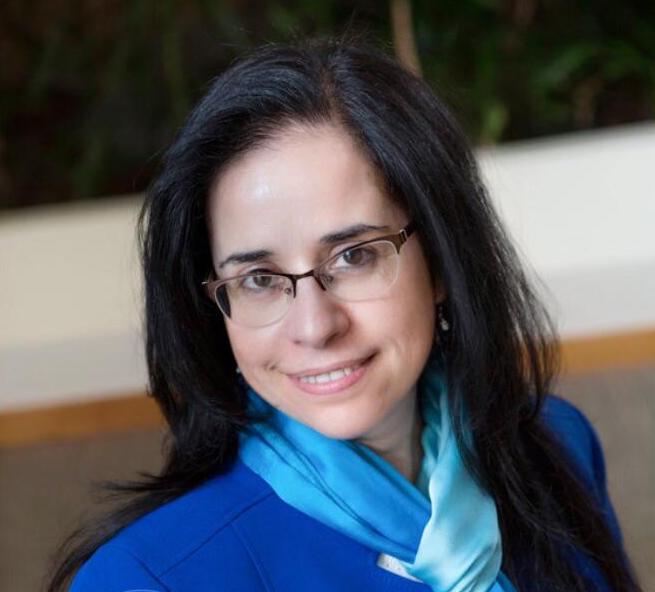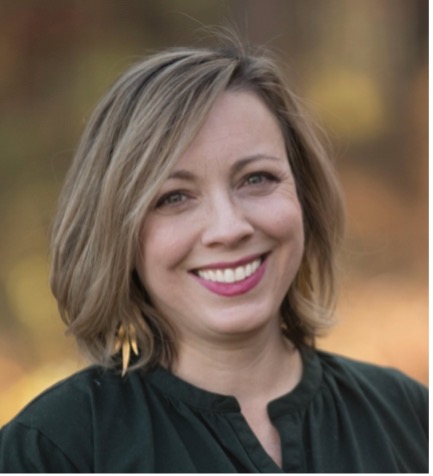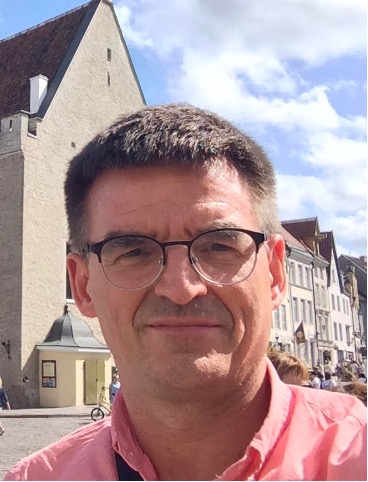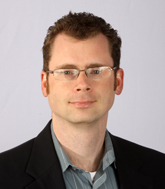
As a firm believer of culturally responsive education, I plan to use the Open Pedagogy Fellowship to make use of open content in MGMT 3350 Management of Workforce Diversity and MGMT 6667 Multicultural Issues in the Workplace. My ultimate goal is to contribute to increasing my students’ access to education and empowering them to co-create knowledge. I consider Open Enabled Pedagogy as a platform for collaborative, innovative, inclusive and equitable learning. I am looking forward to becoming a member of the Open Pedagogy Community at our University.
Khadija Al Arkoubi
Dr. Khadija Al Arkoubi is an Associate Professor of Management at the University of New Haven. She teaches a variety of courses at the graduate and undergraduate levels in the Pompea College of Business. She has significant academic and professional international work experience. Her research interests include Management Education, Spiritual and Global leadership, International Human Resource Management/ Development (IHRM, IHRD). Khadija is a member of multiple professional/academic Associations such as, the Academy of Management, the Academy of Human Resource Development and the Eastern Academy of Management.

Imagine engaging students in developing a college course while simultaneously applying student-centered learning strategies and digital pedagogy. Having earned a Doctor of Education in Health Professions degree, I desire to use my newly learned knowledge in enhancing dental hygiene students’ practical-based learning experiences in the classroom. Theoretically, the Open Pedagogy Fellowship will involve students’ help with redesigning a dental hygiene course in a new and innovative way while using Open Educational Resources (e.g., a digital, interactive student learning tool). In essence, I hope to shift from a traditional learning environment to one in which students participate in the creation of their learning. As I undertake the Open Pedagogy Fellowship, I anticipate chronicling my discoveries and challenges; thus, prepared to mentor faculty who are interested in transforming their course content and re-creating students’ learning experiences.
Sandra D’Amato-Palumbo, R.D.H., M.P.S., E.d.D, is a tenured professor in the School of Health Sciences, Dental Hygiene program. Sandra joined the Dental Hygiene program in 1996, and then became the dental hygiene program director for 13 years. Sandra dedicates her teaching focus by instructing junior- and senior-level dental hygiene students, in the classroom and clinical setting.
Sandra’s scholarly achievements are varied: From publications in high-tiered professional dental journals, to published chapters and electronic media in textbooks, to national and state speaking engagements, to receiving grants and gifts. The highlight of her scholarship included a visiting research scholar position at the University of Connecticut Health Center, School of Dental Medicine. In 2017, Sandra received the distinguished leadership award by the faculty in the Dental Hygiene program.

I’m beyond thrilled to be awarded this 2021 Open Pedagogy Fellowship, and I’m eager to start applying Open Pedagogy concepts to my Fall courses, both newly-developed and department-classics. I’m especially interested in ideas around access and agency, as I’ve been gradually moving towards making my classroom more and more student-driven. Many of my courses feature creative-based projects as summative assignments, allowing students some agency to decide how to best represent and communicate their learning. Students are encouraged to share this summative work with each other or with a broader community, not just with the professor. I’m eager to expand my repertoire of techniques to make my courses more effective and more engaging, and I’m looking forward to exploring how Open Pedagogy concepts can help!
D. Edward Davis
Dr. Davis is a Practitioner-in-Residence in the Division of Performing Arts at the University of New Haven, where he teaches courses about connections between music and culture. He has developed a number of special topics and honors courses in music, including Writing About Music, Sonic Ecology (Music and the Outdoors), Songwriting Workshop, and Music of Texas. In addition to his classroom teaching, Davis serves as the Faculty Advisor for the Music Enhanced Learning Community and also as the Coordinator of the Music BA degree. Davis’s scholarly practice is focused around his original musical composition; his work engages with environmental sound, exploring processes, patterns, and systems inspired by nature. He holds degrees from Duke University, Brooklyn College, and Northwestern University.

The pandemic has demonstrated that solving humanity’s problems requires the collaboration of different disciplines and an awareness of the world around us, not just our own small universe.
As part of the first cohort of Open Pedagogy fellows, I intend to draw from my experience as a scientist and educator, as well as my passion for the humanities and social justice to create open access resources that have a collaborative, inclusive and active learning focus. Because the resources I plan to develop are interdisciplinary, I plan to engage colleagues in other areas of study, fostering a collaborative and interdisciplinary culture on campus. I hope that the interaction with colleagues in other disciplines leads to future collaborations on research projects and experiential interdisciplinary courses at UNH. I am very excited about the opportunity to devote focused time to develop interdisciplinary open access resources under the mentorship of experienced faculty.
Dr. Méndez-Fernández was born and raised in Ponce, Puerto Rico. She received her Ph.D. in Immunology from the Mayo Clinic College of Medicine in Rochester, MN and continued her post-doctoral training at Vanderbilt University Medical Center in Nashville, TN. Her research focused on the molecular mechanisms involved in immune recognition and T cell responses in animal models of infection and inflammatory diseases. As Research Assistant Professor in the Division of Cardiovascular Medicine, she was the recipient of grants from the American Heart Association and the National Institutes of Health to study the role of immune cells in atherosclerosis. As a scientist, Dr. Méndez-Fernández has authored and co-authored more than 20 publications in peer-reviewed journals, including The Journal of Experimental Medicine and Proceedings of the National Academy of Sciences. Dr. Méndez-Fernández has been a full-time educator for the last 8 years. She was an Associate Professor of Biology at Trevecca Nazarene University in Nashville, TN. In addition to teaching and advising, she was involved in mentoring and advocating for minority students in her role as mentor of Futuro, a Hispanic professional development organization, and chair of the ad-hoc faculty diversity committee. In 2016, she was the recipient of the Trevecca Nazarene University Teaching Excellence Award. Dr. Méndez-Fernández currently serves as Lecturer in the Department of Biology and Environmental Science at the University of New Haven and will complete her Master of Public Health in the Spring of 2021. Her current research interests are in the area of access and equity in education and resilience in vulnerable populations.

This fellowship promises to offer us some unique opportunities to teach better, and in new ways with innovative methods using evolving technologies. An exciting component at the core of OP is engagement with students as creators (as opposed to consumers), and using input from students to help us improve our teaching. Being based at the Prato campus I also hope to create freely-accessible sustainable academic resources that bridge our two campuses, promoting mobility and inclusion especially for students for whom study abroad is traditionally unattainable.
Kevin Murphy
Before taking up his position as Dean of the university’s Tuscany Campus in Prato, Italy, Kevin was Academic Dean and Campus Director of the CEA Global Education Programs in Rome and Florence, he was Director of the Art History department at the British Institute of Florence, and he taught courses and seminars in Italian Art History for many US universities in Italy (including Syracuse, Florida State, Gonzaga, and Kent State).
In 1997, he earned his Ph.D. at the Courtauld Institute of Art at the University of London, U.K., and has published on Italian Renaissance art and patronage. Kevin also teaches the course ‘Art & Science in Renaissance Italy’ at the Tuscany Campus.
Kevin is active in the field of international education, and has presented sessions and workshops at conferences in Europe and the U.S.. He was formerly Chair of SAFSA (Study Abroad and Foreign Students Advisers), a professional section of the EAIE (European Association for International Education). He is also an active member of the Forum on Education Abroad. Recently he was part of a committee that revised the Forum’s Standards of Good Practice (6thedition), and a Forum committee that developed Guidelines for Advancing the United Nations Sustainable Development Goals through Education Abroad.

I think of my courses as an open canvas that is always evolving and continues to be tailored to students’ needs. I look to foster this growth through the open pedagogy fellowship and share with colleagues. I value and encourage student feedback (positive AND negative!) to help build my teaching. The more we understand about our students and our ability to teach, the stronger teachers we become, and our students will gain more knowledge and insight.
Laura Silva
Laura Silva is currently a lecturer and the founding director of the Speech Language Pathology Master’s program. Prior to coming to the University of New Haven, Laura’s background includes being a Speech-Language Pathologist and Assistive Technology Specialist as well as teaching in the Special Education department at Southern Connecticut State University.
Throughout her career, Laura focused on helping others learn and build their technology and speech/language skills. The use of check-ins and feedback are powerful tool in training and consultation on different technology tools and strategies, including OER, compensatory and remediation strategies). In addition Laura focused on student feedback to help encourage and foster growth. Student’s input can be key to success!

My interest in the Open Pedagogy Fellowship was spurred by the idea that focusing on students as builders and collaborators in the learning process itself could transform their experience in my classes. With the fellowship I will transform how I teach the Core Curriculum class HIST 1101 Being Human in Antiquity. Students and I will focus not on weekly assigned readings, but instead students will access openly-licensed materials, and add to these their own texts, which we will organize and curate together. The pedagogical core of the project will be student collaboration, their growing sense of connections with past human experience, and exploring the diversity both of our students and of the groups within our shared human past.
Dr. Woodworth is Associate Professor of History at the University of New Haven. His research is centered on the multiethnic societies of the tsarist Russian Empire and the Soviet Union. He has published an edited volume Russia on the Baltic: Imperial Strategies of Power and Cultural Patters of Perception (16th-20th Centuries). He is among a group of faculty putting together a certificate program in Russian and Eurasian Studies at the university. He loves learning languages; though his Georgian has become rusty, he is currently working on Hungarian.

I am interested in the Open Pedagogy Fellowship because I have noticed that students seem most engaged when they are working for each other or for an audience beyond that of the professor. I plan to use the fellowship to develop methods to involve students in the creation of course materials and design spaces for hosting them.
Matt Wranovix
Dr. Matt Wranovix is a faculty member in the History Department and the Director of the Honors Program. A native of Memphis, TN, Matt received his BA from Rice University in Houston, TX, and his PhD from Yale University. He is a historian of medieval and early modern Europe, who specializes in the circulation, reception, and transformation of ideas as well as the materiality of books in the pre-modern world. His own book, Priests and Their Books in Late Medieval Eichstätt (2017), looked at how ideas moved from university to parish in an era transitioning from hand-written manuscripts to printed books. Recently his research interests have increasingly turned towards pedagogy in the modern university. In his courses, students have designed games, curated digital exhibits, and produced interactive maps and timelines.

Through my work as an Open Pedagogy Fellow, I will create Open Educational Resources (OER) for embedding economic and marketing mindsets in engineering and science courses. I will design the OER to introduce what economic and marketing concepts can be, and how to be, discussed in the class as well as relevant case studies. The OER was proposed based on my successful practice of integrating the module of “Economic Analysis of Renewable Energy Generation” in a senior course. Dr. Zhao expects the new module can help students view technology advancement with an additional economic perspective and critical thinking.
Junhui Zhao
Dr. Junhui Zhao is an Associate Professor in the Department of Electrical & Computer Engineering and Computer Science at the University of New Haven. Dr. Zhao currently researches renewable energy, energy storage, and smart grid cybersecurity. He is an enthusiast of clean energy solutions and net-zero future. Dr. Zhao and his group are working on increasing the penetration of renewable energy and energy storage into power grids. Dr. Zhao and his colleagues lead a student team that participated in a DOE-sponsored national competition on wind turbine design. Dr. Zhao was a recipient of the Best Paper Award in the 2019 IEEE International Electrical and Energy Conference and the champion in the Michigan Clean Energy Venture Competition.